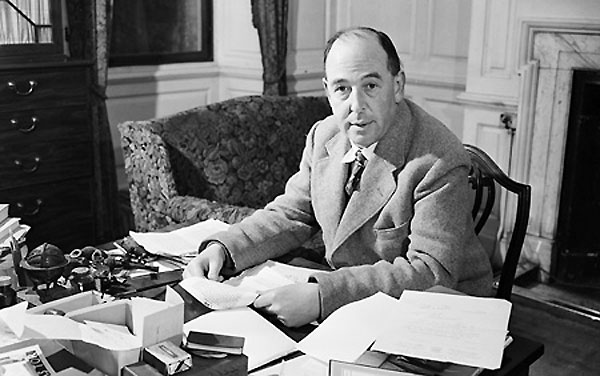
Word of the Day: Deontology
So, a big, fancy philosophy word for today’s Word of the Day, this time coming from Word Genius. The website gives two definitions for deontology: “1. A theory of ethics that establishes rules of right and wrong actions; 2. The study of determining the right way to live life, based on duty and moral obligation.” Dictionary.com defines it as “ethics, especially that branch dealing with duty, moral obligation, and right action.” Etymonline.com defines detontology as the “science of moral duty, ethics.” Furthermore, it says that the word came into the language in 1817, “from Greek deont-, combining form of deon ‘that which is binding, duty’ (neuter present participle of dei ‘is binding’) + –ology.”
Today is my brother’s birthday—Happy birthday, Bill. But y’all don’t know my brother, so….
Today is the birthday of C. S. Lewis. Lewis, of course, was a writer, a literary critic, a scholar, and a Christian apologist. I thought that on this day I would share some quotations from Lewis.
“Since it is so likely that children will meet cruel enemies, let them at least have heard of brave knights and heroic courage.” –“On Stories” and Other Essays on Literature
We tend to think of cruel enemies as people like Darth Vader or Adolph Hitler, but cruelty can come from anywhere, our enemy can be anyone. Sometimes it is someone you work with or work for, someone you thought you could trust, someone who presents a façade of caring, honesty, and faith.
“There are only two kinds of people: those who say to God, ‘Thy will be done,’ and those to whom God says, ‘All right, then, have it your way.’”—The Great Divorce
The problem is this: How do you know that what you are doing God’s will or your will? You can check Scripture, but Scripture says a lot of different things. More specifically, you should look at the words of Jesus. If Jesus says, “Don’t judge others,” and you’re judging others, you might be on the wrong track.
“When we Christians behave badly, or fail to behave well, we are making Christianity unbelievable to the outside world.”—Mere Christianity
This is really important for those who profess the faith. Your behavior will always, eventually, become public, and if that behavior contradicts what we profess, it will allow non-believers to say, “See those Christians! They preach grace and forgiveness and love, but when push comes to shove, they act just like everybody else. They say they are about their faith, but their lives are just ruled by business.” If you’re a Christian, and if you have the opportunity to show grace to someone else, do it.
“Love is not affectionate feeling, but a steady wish for the loved person’s ultimate good as far as it can be obtained.”—God in the Dock
And whom should we love? In Matthew 5:43-46, Jesus says, “You have heard that it was said, ‘You shall love your neighbor and hate your enemy.’ But I say to you, Love your enemies and pray for those who persecute you, 45 so that you may be sons of your Father who is in heaven. For he makes his sun rise on the evil and on the good, and sends rain on the just and on the unjust. For if you love those who love you, what reward do you have? Do not even the tax collectors do the same?” Sadly, though, there are professed Christians who love only those who are like them, especially like them in the manner of belief.
“The Son of God became a man to enable men to become sons of God.”—Mere Christianity
Again, sadly, there are far too many Christians who have come to believe that Jesus became man so that they could become Pharisees, judging others according to their own standards instead of to the standards of Christ.
“To be a Christian means to forgive the inexcusable, because God has forgiven the inexcusable in you.”—Essays on Forgiveness
I do not know of anything harder than forgiving those who have hurt you except forgiving those who have hurt the people you care about. I pray that we all might learn how to do that. We have a moral duty to forgive, to not judge, to love our neighbors and our enemies. And we have a moral duty to encourage and to challenge others to do the same, whether those others are children, friends, or even college administrators.
The image is of Lewis at his desk in the Kilns, a desk where I have sat, and it is taken from https://fee.org/articles/was-cs-lewis-a-libertarian/.